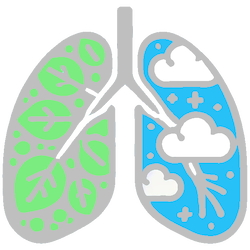Hartford, CT – July 13, 2024 – The Connecticut Department of Energy and Environmental Protection (DEEP) has issued draft permits for Reworld, Inc. (formerly Covanta) to construct and operate a medical waste burning operation at their existing trash incinerator at 170 Enterprise Drive, Bristol, CT. This proposal, which DEEP released July 5, has sparked significant public health and environmental concerns and already led residents around the state to formally petition DEEP to hold a public hearing on these permits.
The facility, authorized to burn up to 57 tons of biomedical waste (BMW) daily, poses severe health risks. The incineration of BMW, especially hazardous materials such as infectious and chemotherapy waste, releases toxic air pollutants. These include dioxins, furans, mercury, lead, and particulate matter—substances known to cause cancer, respiratory issues, cardiovascular diseases, and other severe health problems.
Incinerators burning medical waste are particularly notorious for releasing high levels of dioxins and furans. These toxic compounds persist in the environment and accumulate in the food chain, posing long-term health risks to communities. The draft permit’s lack of stringent safeguards exacerbates these risks, potentially leading to contamination of local air, soil, and water, and runs counter to state efforts to address bioaccumulative “forever chemicals” such as perfluoroalkyl and polyfluoroalkyl substances (PFAS).
The proposed location of the BMW burning operation is located within a lower-income, environmental justice (EJ) community that, according to the state’s own Environmental Justice Screening Tool, suffers from a disproportionately high pollution burden. “The siting of this facility in an EJ community with minimal public involvement violates the spirit, if not the letter, of Public Act 23-202, the Connecticut’s landmark environmental justice law,” notes area resident Francis Pickering.
Approval of the permit would have Connecticut hosting one of the nation’s largest medical waste incinerators, importing waste from throughout the Northeastern U.S.. Rhode Island banned medical waste incineration in 2021, in response to plans for such a facility there. In 1988, there were over 6,200 medical waste incinerators in the U.S., according to the Environmental Protection Agency, yet fewer than 30 exist today, with none remaining in New England. Nationwide, medical waste is predominantly processed using safer, non-burn technologies like autoclaves. No state requires burning of medical waste in general, though a handful include small subsets like chemotherapy waste or pathological waste (human tissue) to be incinerated. These make only up about 1% of medical waste. Connecticut requires chemotherapy wastes to be incinerated, and Vermont requires pathological waste to be incinerated, though safer alternatives exist to both.
“There is no need to burn medical waste,” said Mike Ewall, Executive Director of Energy Justice Network. “This proposal exists only to help Reworld pump more money out of their old and uneconomical small incinerators, as they make about seven times more per ton taking medical waste than trash.”
Under the permit, over 1,000 trucks could enter the state every year carrying infectious, pathological, and chemotherapy waste, including waste contaminated with pathogens such as Ebola virus that are so dangerous they can only be handled in a Biosafety Level 4 laboratory, raising the risk of accidental releases or spills and of harm to first responders and to the communities through which these hazardous materials pass.
The burning of BMW is inconsistent with state efforts to address the climate crisis. Incineration is more greenhouse gas intensive than any other energy source, including coal. In addition, as DEEP has noted, “Connecticut is facing a waste crisis.” Importing out-of-state waste into a situation where the state cannot handle its own waste undermines efforts to resolve this crisis as well.
“We urge residents and environmental groups to scrutinize the draft permit and participate in the public comment period,” said Jodie Bechard-Maro, Coordinator of Bristol Residents for Clean Air. “We are committed to fighting this permit and ensuring rigorous environmental standards and robust safety measures to protect public health and the environment.”
Contact:
Jodie Bechard-Maro 860-550-3581 contactus@bristolresidents.org
Mike Ewall 215-436-9511 mike@energyjustice.net

